Getting a good night’s sleep is easier said than done. With all of the stresses and responsibilities of our busy lives buzzing about our heads late at night, it can be tough to get the restful slumber that our bodies and minds need to function their best. Here’s how to use common herbs for sleep – and you’ll be resting easy in no time. 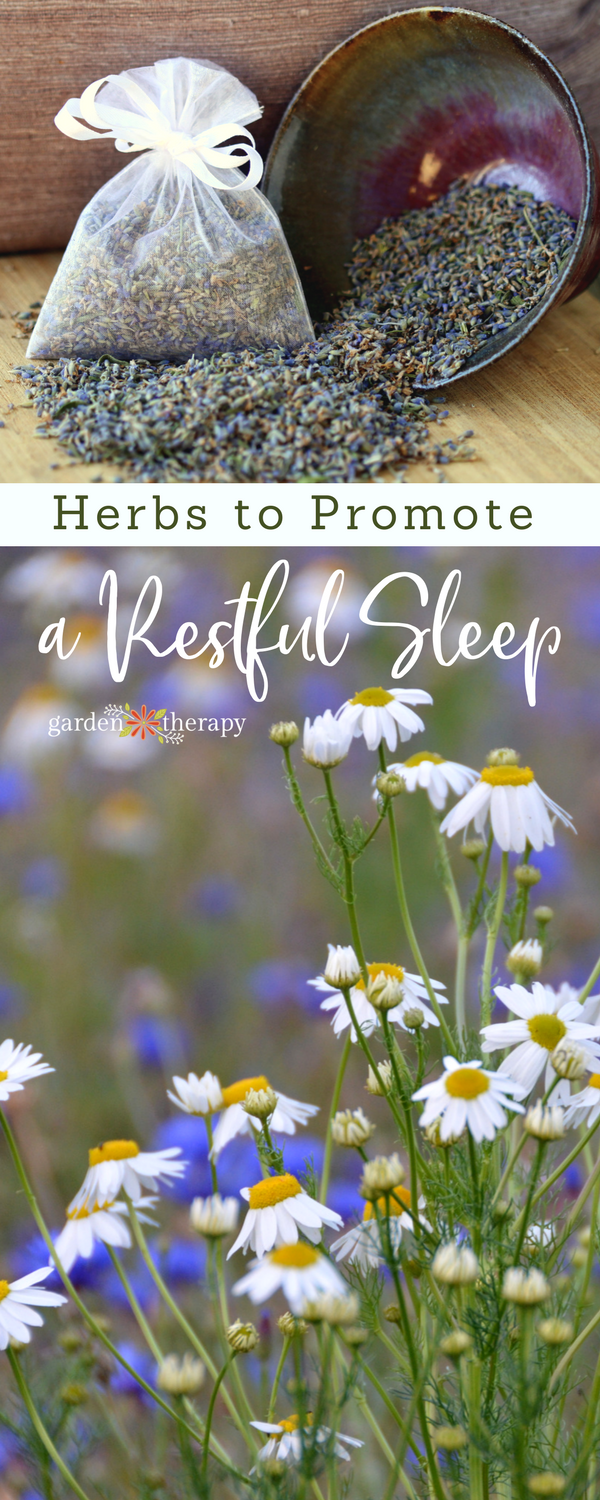
If you’re anything like me, it can be quite challenging to turn off all the stimuli and get a good night’s rest. I’ve been there! Thankfully, I’ve discovered the best natural sleep aid…herbs!
There are two things that made the biggest difference for me: creating an evening routine and incorporating some of these natural sleep aids.
Using these herbs for sleep can do wonders for your sleep schedule, and in turn, your whole life. Trust me, EVERYTHING seems easier after a good night’s sleep!
Creating a Bedtime Routine: an Easy Natural Sleep Aid
Before we get into the list of herbs for sleep (and how to use them), let’s first chat about the importance of building healthy sleep habits, and creating good sleep hygiene (yes, it’s a thing!).
Building up healthy sleep habits can be difficult at first, but it is one of the most important things we can do for ourselves. Creating a regular nightly routine of calming activities about an hour before bed helps to wind down at the end of the day so that your body and mind are calm and ready to head into a restful slumber once your head hits the pillow.
Quick Tips for Healthy Sleep Habits
The phrase “sleep hygiene” refers to creating a series of healthy sleep habits. These habits will help improve your ability not just to fall asleep, but also to stay there. Just as showering and brushing our teeth is a part of our personal hygiene, these healthy sleep habits should become part of our daily routine.
Here are some quick tips for good sleep hygiene:
- Keep your sleep schedule consistent. Try to go to bed and wake up at the same time every single day of the week…yes, even the weekend! This will help your body create a consistent schedule and find its rhythm. If you have kids and pets you know they don’t switch their sleep schedule for the weekend (as frustrating as that may be!).
- Get at least 7 hours of sleep each night. This is a tough one, especially if you have a hectic life and/or small children. Prioritize your sleep over everything else wherever you can to get that good, restful sleep.
- Eat well. Yes, a poor diet can affect your ability to sleep. Take care of yourself and your body will follow suit.
- Exercise regularly. Getting regular moderate exercise is important to tire out your body enough that it can rest. No need to hop on the treadmill before bedtime, that could stimulate you more! Being sedentary can also affect the quality of your sleep. Even when you are feeling unwell, try to get up and do something that gets your body moving so you can rest well at the end of the day.
- Limit exposure to bright light 30 minutes to an hour before bed. Blue light right before bed can be disruptive to your sleep. This means you should turn off the television, and yes…even your phone right before bed. If you have to use either, try using blue light blocking glasses to see if they help.
- Relax. Allow your body to relax fully, especially if you have tension or pain. A herbal bath using bath salts or tub teas makes all the difference for me, as the Epsom salts helps to ease muscle pain and even Restless Leg Syndrome.
There are many more helpful tips and tricks you can use to build good sleep hygiene. There’s a good list from the CDC with tips for getting better sleep.
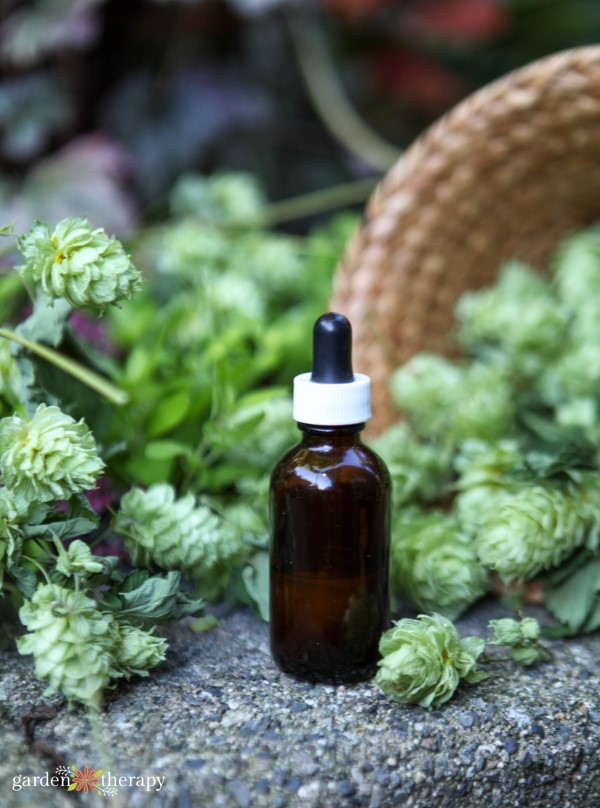
Best Herbs for Sleep
Now…let’s talk herbs for sleep! Incorporating these natural sleep aids into your nighttime routine can help to relax you even more. The ritual of sipping a cup of herbal tea or taking a lavender-scented soak before bed can also become a central part of your wind-down routine.
These herbs are the ones to reach for when you are tossing and turning at night. It may take some trial and error to see what your body responds to best, but these plant-based remedies are an easy thing to start with. So put down the “To-Do” list, turn off your phone, and get started on a healthy herbal bedtime ritual with these natural sleep remedies.
Hops – Humulus lupulus
Hops contain methylbutenol, a chemical that induces sleep when consumed. You can brew hops into a natural bedtime tea to help you sleep. The tea is bitter, so you may want to add honey, stevia, or the sweetener of your choice. You can also blend it with other calming herbs such as mint and chamomile for a sleepy tea that tastes more appealing.
Simply smelling the aroma of hops also helps to calm and promote sleep, so another option is to make a small sachet filled with dried hops and slip it inside your pillowcase for sweet dreams.
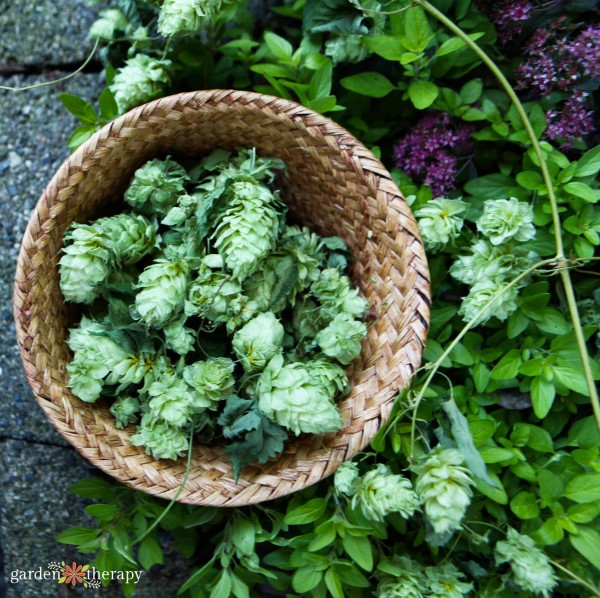
Mint – Mentha
Although the bright scent of mint is often associated with energy and invigoration, mint is also a powerful herb to use at nighttime to get ready for bed. It makes a delicious, soothing tea that relaxes muscles. Mint also reduces uncomfortable bloating and stomach pain caused by gas, so if a sore tummy is keeping you up at night, reach for a cup of mint tea with honey.
This natural sleep aid also has a more appealing taste than some of the other herbs for sleep on this list, so you may want to add some mint leaves to a tea of passionflower or hops if you want to disguise the taste without diminishing the effects of those herbs.
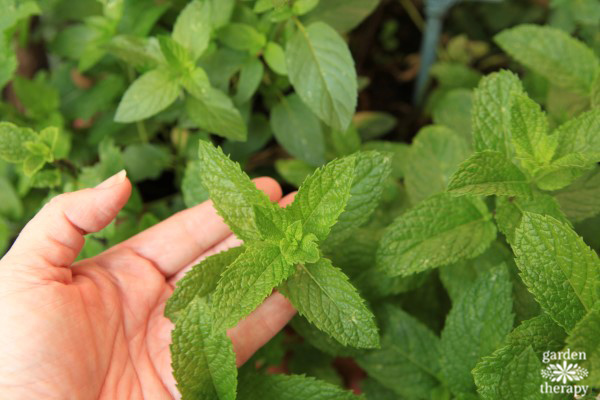
Chamomile – Matricaria chamomilla
Chamomile contains apigenin, a compound that releases a mild sedative and works to calm the nerves. Chamomile can also help to soothe an upset tummy, so chamomile can help to remedy discomfort from digestive problems while relaxing your body and mind. Chamomile and mint together make a relaxing before-bed tea that will also help with pain related to digestion.
Chamomile is a mild, gentle herb for sleep. Despite this, it’s surprisingly potent and effective! If you have pain at night that prevents you from getting a good rest, this can be one of the best natural sleep remedies to try.
Rosemary Gladstarr, the mother of modern herbalism, sites the power of chamomile in her book, Medicinal Herbs. She sites a clinical study in which 10 out of 12 people who drink chamomile tea instead of taking their normal pain medication went into a deep restful sleep within 10 minutes of retiring. Now that’s powerful!
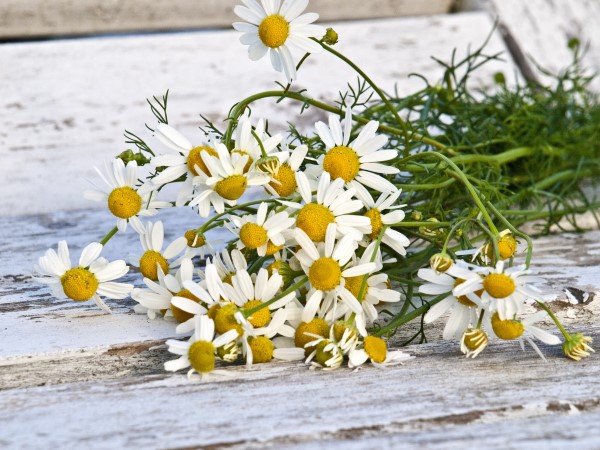
Passionflower – Passiflora incarnate
Passionflower is a natural sleep aid that is calming and promotes deep, restful sleep. This herb for sleep is often used to reduce anxiety and induce sleep safely and naturally. Passionflower contains nerve-relaxing flavonoids, which calm the nerves and result in relaxation and reduce anxiety, which in turn allows us to fall into a restful slumber.
You can take passionflower in the form of tinctures, capsules, or tea. I recommend tea because just the ritual of drinking a hot mug of tea before bed is relaxing in itself.
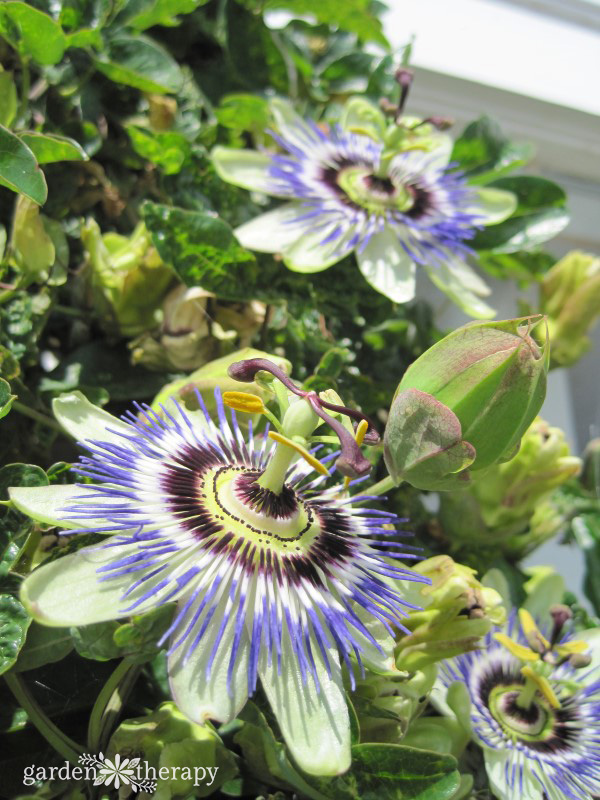
Lavender – Lavandula angustifolia
Inhaling the fragrance of lavender calms the body and mind, and it has a mild sedative effect that can help to induce sleep. While you can certainly brew a lavender tea to help you wind down at the end of the day, a more effective way to use the lavender herb for sleep is through aromatherapy.
You can make a lavender sachet in seconds—simply stuff a small drawstring bag with dried lavender flowers and tie it closed. Pop the sachet inside your pillowcase for a restful slumber, or spritz some lavender pillow spray onto your linens.
I especially like to use lavender sachets when traveling because it is an easy way to make an unfamiliar sleeping situation feel homier. Plus, lavender has antibacterial and antifungal properties so you can rest easy, even on a hotel pillow that has been used by many others before you.
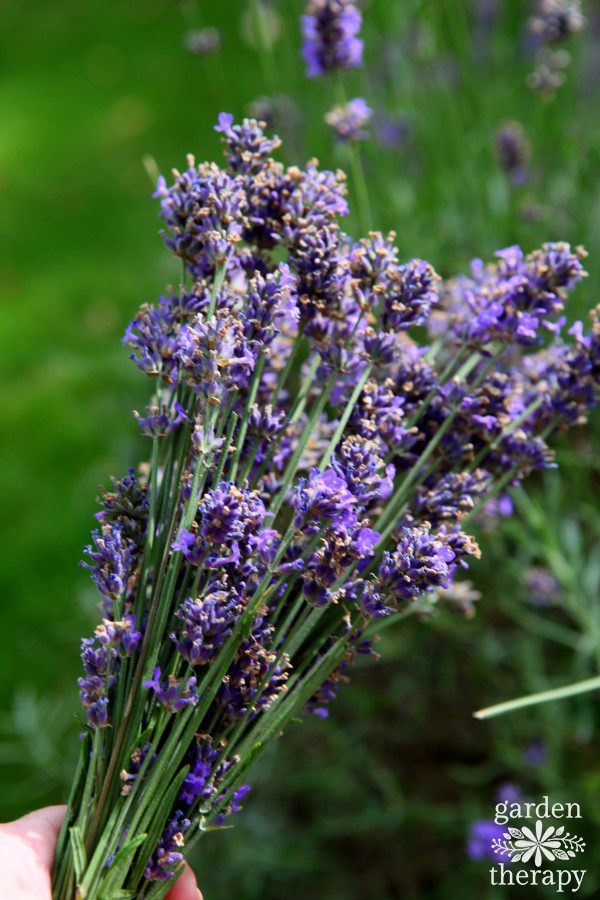
Another great way to use lavender for sleep is in the bath. Taking a hot soak before bed is a wonderful way to unwind and soothe any tension or sore muscles at the end of the day, and adding a little lavender to the bath will make it even more restful and get you ready to doze off afterward. Simply add a few drops of lavender essential oil directly to your bathwater, or try these DIY lavender bath melts or lavender bath salts.
Lemon Balm – Melissa officinalis
Lemon balm is a member of the mint family, and has all those good qualities of the mint plant, with a different flavor. If you don’t care for the taste of mint, give lemon balm a try! As the name suggests, fresh lemon balm tastes bright and citrusy, so fans of lemon will like it.
Steep a handful of lemon balm leaves in hot water to make a DIY natural sleep aid that comes right from your garden. I have found lemon balm to be incredibly useful and effective for a wide variety of other things, including attracting bees to your garden and combating stress and fatigue. Here’s a guide I put together with everything you need to know about growing, harvesting, and using lemon balm.
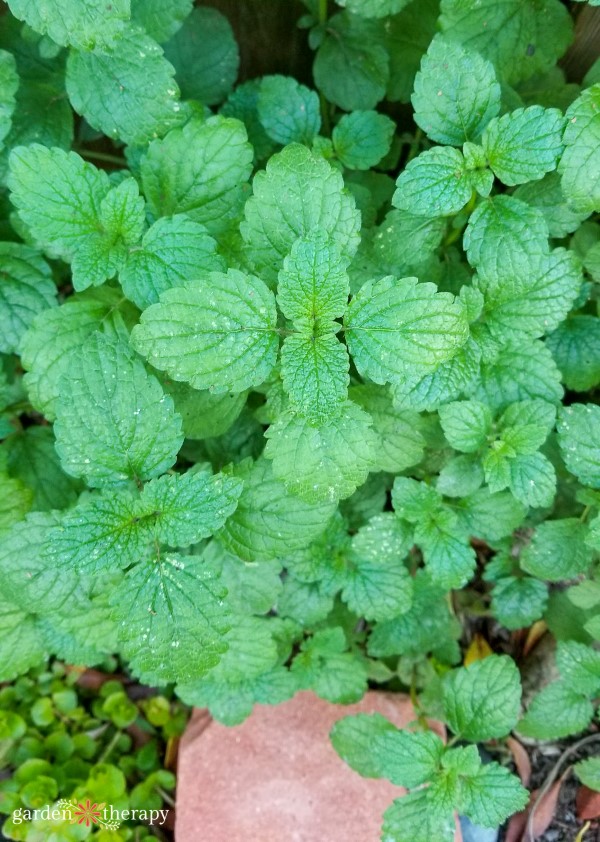
How to Add Herbs to Your Bedtime Routine
- Brew an herbal tea and drink it 30 minutes to an hour before bedtime. Here’s a handy guide on how to harvest and brew your own herbal tea. Combine drinking your mug of tea with another relaxing activity like taking a bath or reading a novel in bed (no screens, though).
- Take a hot bath and soak for at least 20 minutes. Add a few drops of essential oils to the water or make a tub tea with your favorite combination of the above herbs for sleep.
- Rub a relaxing essential oil blend on your feet. In the summer I use lavender and during cold-and-flu season I use a combination of lavender and Thieves oil to boost immunity. Giving yourself a foot massage before bed will relax muscle tension and calm your body, while the fragrance of the essential oils will relax your mind.
- Tuck lavender or hops sachets into your pillow so that you can benefit from these herbs’ sleep-inducing properties as you rest your head.
- Spritz your bed linens with lavender pillow spray to give your entire bed a relaxing scent.
More Herbal Projects You Might Like:
- 18 Herb Crafting Projects from Three Versatile Herbs
- Fresh Herb Finishing Salt Recipe
- Pressed Rosemary Candles
- Grow an Herbal Tea Garden
- Harvesting English Lavender and How to Use it

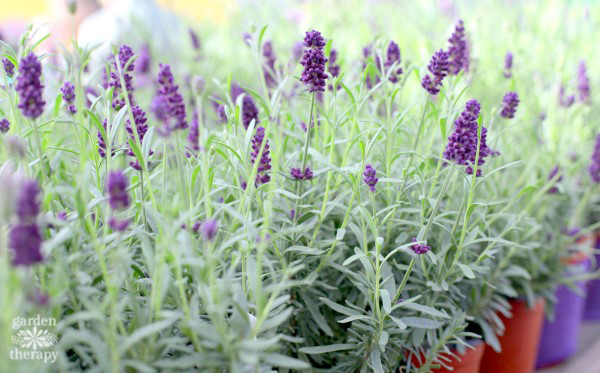
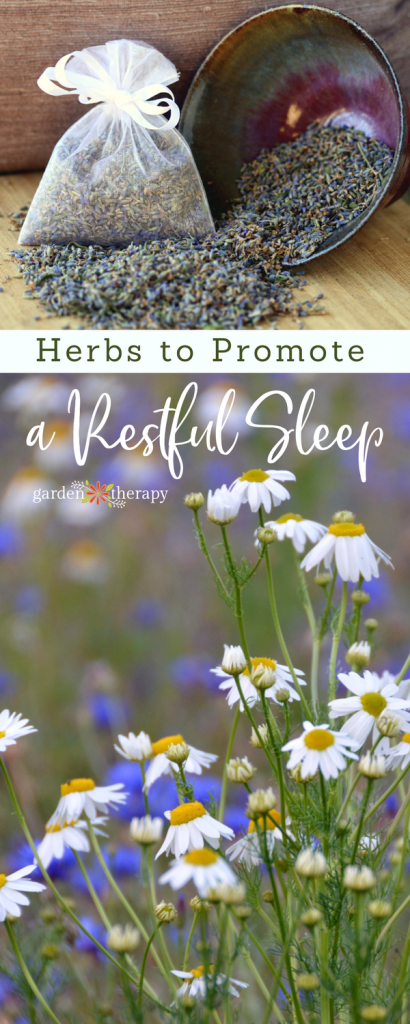



I have valentines and chrysanthemums in my house, I will collect more flowers for more beautiful and sleep. Thank you very much.
Another great herb for sleep is skullcap. Yogi brand sleep time tea is a good way to try it. It also contains camomile, passion flower, and a few others. I find sleep time tea w/o skullcap just doesn’t work as reliably as the one with. Plus I am a serious insomnia sufferer, so this is my go-to tea. Make sure you drink the tea about 30 min. before you are going to bed to give it time to work.
I have restless leg syndrome and its absolutely annoying. No eating about 4 hours before bed (very important) and 30 mins of meditation – plus herbal teas were what I found helpful. Some people claim meditation gives them more energy so i guess experiment, see how it works for you. As for sleep, I prefer herbal remedies over medication any day ( 10mgs of Ambien was a nightmare.) Ill either drink kava tea or ill take 3mg of melatonin. I’d say my sleep routine has gotten better after all of the above. Its just staying disciplined with not eating is a tough one lol
Hi, I keep browsing and searching your site, do you have any recipes for a wrinkle face balm or salve please , I don’t want to use water in any way, thank you